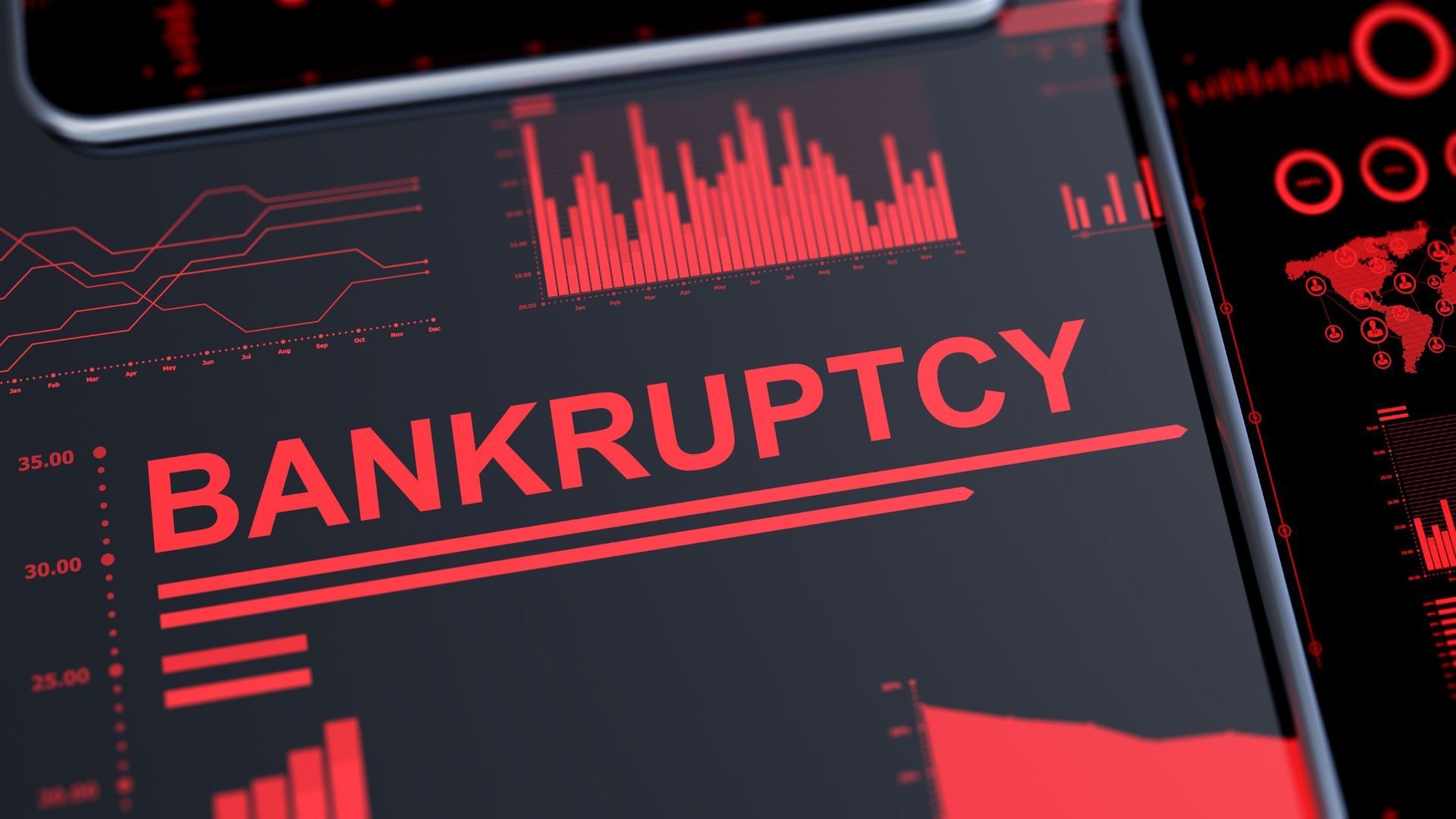Contact Us
Phone: (917) 905-8280
Location
1 Liberty Street
Suite 2327
New York, NY, 10006
Hours
- Mon - Fri
- -
- Sat - Sun
- -
How Long Does Chapter 7 Bankruptcy Take? Understanding the Timeline and Process
How Long Does Chapter 7 Bankruptcy Take?

If you’re considering filing for Chapter 7 bankruptcy, one of the biggest questions on your mind may be, “How long does Chapter 7 bankruptcy take?” Chapter 7 is often chosen by individuals looking for a faster path to debt relief, as it involves liquidating non-exempt assets to pay off creditors and provides a relatively quick discharge of debts.
At J. Singer Law Group PLLC, we understand that navigating the bankruptcy process can be overwhelming. Our experienced attorneys are here to guide you through every step, from filing to discharge. In this guide, we’ll explain how long the Chapter 7 process typically takes, the factors that can affect your timeline, and what to expect during each stage.
What is Chapter 7 Bankruptcy?
Chapter 7 bankruptcy, often called “liquidation bankruptcy,” is designed to help individuals discharge unsecured debts like credit card bills, medical expenses, and personal loans. By filing for Chapter 7, eligible individuals can eliminate qualifying debts and get a fresh financial start. Unlike Chapter 13 bankruptcy, Chapter 7 does not involve a repayment plan, and the entire process is generally much quicker.
Average Timeline for Chapter 7 Bankruptcy
On average, a Chapter 7 bankruptcy case takes about four to six months from filing to discharge. However, this timeline can vary depending on individual circumstances, court schedules, and the specifics of your case.
Steps Involved in Chapter 7 Bankruptcy and How Long They Take
While every bankruptcy case is unique, most Chapter 7 cases follow a similar process. Here’s a breakdown of each stage and how long you can expect it to take:
1. Pre-Filing: Credit Counseling (1 Day to 1 Week)
Before you can file for Chapter 7, you must complete a credit counseling course from a court-approved provider. This course can often be completed in a single session, either online or over the phone, and usually takes about one to two hours. Once you complete the course, you’ll receive a certificate of completion, which must be filed with your bankruptcy petition.
2. Filing the Petition (1 to 2 Days)
After completing credit counseling, your attorney will help you gather all the necessary documentation, including income records, asset lists, debt information, and tax returns. Once everything is prepared, your attorney will file your Chapter 7 bankruptcy petition with the bankruptcy court. This marks the official start of your bankruptcy case.
Upon filing, an automatic stay goes into effect, which stops all collection actions by creditors, including phone calls, wage garnishments, and lawsuits.
3. Appointment of a Trustee (1 to 2 Weeks After Filing)
Shortly after you file, the court will assign a bankruptcy trustee to oversee your case. The trustee is responsible for reviewing your assets, ensuring that everything has been disclosed accurately, and determining whether any non-exempt assets should be liquidated to pay creditors. This appointment typically happens within one to two weeks of filing.
4. Meeting of Creditors (341 Meeting) (3 to 6 Weeks After Filing)
Within 21 to 40 days of filing, you’ll be required to attend a 341 Meeting of Creditors, where the trustee and any creditors can ask you questions about your finances and the details in your bankruptcy petition. The meeting itself usually takes less than 10 minutes, and in many cases, creditors do not attend. This meeting is straightforward as long as you’ve provided accurate information in your filing.
5. Trustee Review and Asset Liquidation (If Applicable) (Ongoing)
After the 341 meeting, the trustee will review your case in more detail. In most Chapter 7 cases, there are no non-exempt assets to sell, so the trustee will submit a “no asset” report to the court. However, if you do have non-exempt assets, the trustee may liquidate them and distribute the proceeds to your creditors. This process can extend the timeline if asset liquidation is required, though most cases proceed without this step.
6. Debtor Education Course (1 Day to 1 Week)
Before you can receive a discharge, you must complete a debtor education course, which is intended to provide financial management guidance. Like the credit counseling course, this can typically be completed in one to two hours, either online or by phone. Once completed, you’ll file a certificate of completion with the court.
7. Discharge of Debts (60 to 90 Days After 341 Meeting)
If there are no complications, the court will issue a discharge order about 60 to 90 days after the 341 meeting. This order eliminates eligible unsecured debts, meaning you are no longer legally obligated to repay them. The discharge marks the end of the Chapter 7 process, and your case will be closed shortly afterward.
Factors That Can Affect the Chapter 7 Timeline
While most Chapter 7 cases are resolved within four to six months, certain factors can extend the timeline. Here are some of the most common factors that may delay the process:
1. Complex Asset Situations
If you have significant assets or own complex property, such as multiple properties or valuable collectibles, the trustee may need more time to assess whether any assets are non-exempt and should be liquidated to pay creditors. Complex asset situations can add a few months to the process.
2. Incomplete or Inaccurate Documentation
Providing complete and accurate information is essential to ensure a smooth Chapter 7 process. Missing or incorrect information can result in delays or even case dismissal. Working with an experienced attorney can help you avoid common mistakes and ensure that your paperwork is in order.
3. Creditor Challenges
Creditors have the right to challenge the discharge of specific debts or raise concerns about fraud if they believe you’ve misrepresented your financial situation. Although creditor challenges are rare, they can extend the process by several months if they occur.
4. Required Asset Liquidation
If you have non-exempt assets that the trustee chooses to sell, the liquidation process may take additional time. This is particularly relevant if the assets are difficult to sell or require valuation before liquidation.
When to Expect a Discharge in Chapter 7 Bankruptcy
In a typical Chapter 7 case, you can expect a discharge within 60 to 90 days after the 341 meeting. This discharge eliminates eligible unsecured debts, including credit card debt, medical bills, and personal loans. Once you receive the discharge, your case is complete, and you can begin your financial fresh start.
How J. Singer Law Group PLLC Can Help with Your Chapter 7 Bankruptcy
Filing for Chapter 7 bankruptcy can be a complex process, but the experienced attorneys at J. Singer Law Group PLLC are here to guide you every step of the way. We can help you:
- Determine Eligibility: We’ll assess your financial situation to determine if Chapter 7 is the right choice and whether you qualify under the means test.
- Prepare and File Your Petition: We’ll assist you in gathering and organizing the necessary documentation, completing your petition accurately, and filing it with the court.
- Navigate the 341 Meeting: Our attorneys will prepare you for the 341 meeting, ensuring you know what to expect and have answers ready for the trustee’s questions.
- Provide Ongoing Support: From credit counseling to completing the debtor education course, we’ll be with you every step of the way to ensure a smooth and efficient process.
Conclusion: How Long Does Chapter 7 Bankruptcy Take?
The Chapter 7 bankruptcy process typically takes four to six months from filing to discharge, though this timeline can vary based on individual circumstances. Chapter 7 offers a relatively quick and efficient way to eliminate eligible debts and start fresh financially. If you’re struggling with debt and considering Chapter 7 bankruptcy, an experienced attorney can help ensure that your case proceeds smoothly and efficiently.
At
J. Singer Law Group PLLC, we’re dedicated to helping individuals achieve financial relief through Chapter 7 bankruptcy. Contact us today for a free consultation, and let us help you understand the Chapter 7 process and determine if it’s the right solution for your needs.
Frequently Asked Questions
1. How long does Chapter 7 bankruptcy stay on my credit report?
Chapter 7 bankruptcy remains on your credit report for up to 10 years from the filing date. However, many individuals find that they can begin rebuilding their credit within one to two years of filing.
2. Can I keep my home in Chapter 7 bankruptcy?
Whether you can keep your home depends on the equity in the property and the exemptions available in your state. In many cases, individuals can keep their homes if the equity is within the state’s exemption limits.
3. What debts are discharged in Chapter 7 bankruptcy?
Chapter 7 bankruptcy typically discharges unsecured debts, such as credit card balances, medical bills, and personal loans. However, certain debts, like student loans, child support, and recent tax debts, are generally not dischargeable.
4. Will I have to go to court in Chapter 7 bankruptcy?
Most Chapter 7 cases require you to attend a 341 Meeting of Creditors, but this is not a formal court appearance. In most cases, you will not need to appear in court unless there are complications or disputes.
5. What happens if I acquire new debt after filing Chapter 7?
New debt acquired after filing for Chapter 7 bankruptcy is not included in the discharge and remains your responsibility. It’s essential to be mindful of new debt after filing to avoid further financial difficulties.
Schedule a Case Evaluation
Contact us now!
Homepage FCE Form
We will get back to you as soon as possible.
Please try again later.
By submitting this form, you agree to be contacted by our law firm, either by phone, text or by email.
Practice Areas
Hours
- Mon - Fri
- -
- Sat - Sun
- -
The information on this website is for general information purposes only. Nothing on this site should be taken as legal advice for any individual case or situation. This information is not intended to create, and receipt or viewing does not constitute an attorney-client relationship.
We are a debt relief agency. We are attorneys who help people file for bankruptcy relief under the bankruptcy code.
All Rights Reserved | J. Singer Law Group, PLLC | Powered By Convert It Marketing | Privacy Policy
All Rights Reserved | J. Singer Law Group, PLLC | Powered By Convert It Marketing | Privacy Policy











